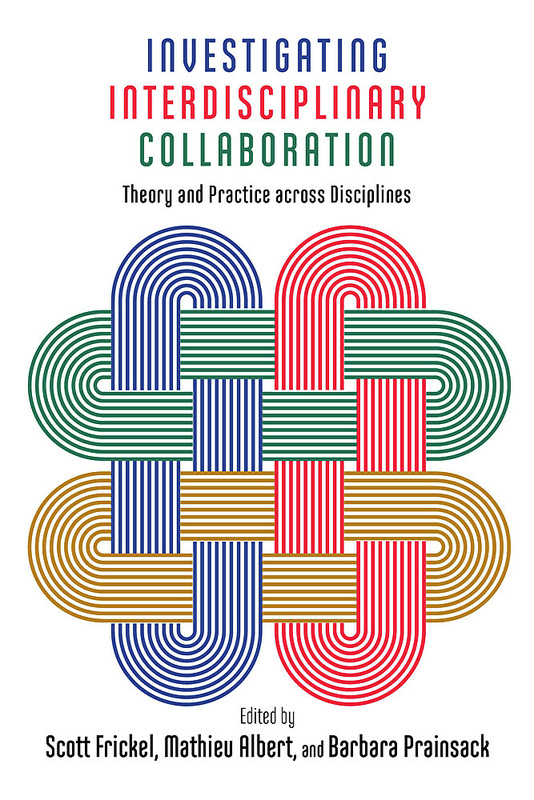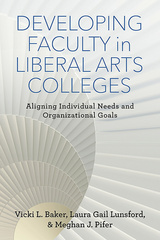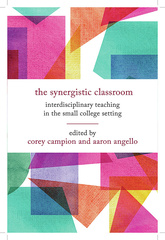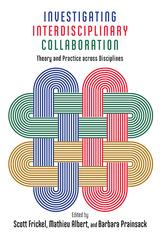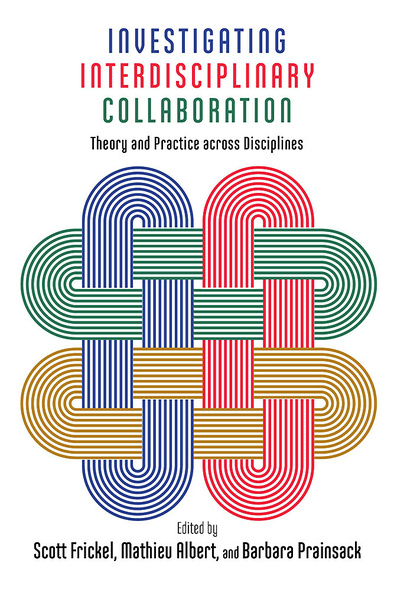
256 pages, 6 x 9
10 figures, 7 tables
Paperback
Release Date:25 Nov 2016
ISBN:9780813585888
Investigating Interdisciplinary Collaboration
Theory and Practice across Disciplines
SERIES:
The American Campus
Rutgers University Press
Interdisciplinarity has become a buzzword in academia, as research universities funnel their financial resources toward collaborations between faculty in different disciplines. In theory, interdisciplinary collaboration breaks down artificial divisions between different departments, allowing more innovative and sophisticated research to flourish. But does it actually work this way in practice?
Investigating Interdisciplinary Collaboration puts the common beliefs about such research to the test, using empirical data gathered by scholars from the United States, Canada, and Great Britain. The book’s contributors critically interrogate the assumptions underlying the fervor for interdisciplinarity. Their attentive scholarship reveals how, for all its potential benefits, interdisciplinary collaboration is neither immune to academia’s status hierarchies, nor a simple antidote to the alleged shortcomings of disciplinary study.
Chapter 10 is available Open Access here (https://www.ncbi.nlm.nih.gov/books/NBK395883)
Chapter 10 is available Open Access here (https://www.ncbi.nlm.nih.gov/books/NBK395883)
A most welcome contribution, filled with richly detailed case studies conducted by a stellar array of scholars. This volume scrutinizes key assumptions of the case for interdisciplinarity.
Interdisciplinary collaboration has been established as valuable to scientific creativity and vital to bringing knowledge effectively to major public issues. But discussion of what this means and how it works are still too often vague. This book will help, because it offers thoughtful and indeed disciplined case studies of how interdisciplinary collaboration works in practice.
This high quality volume makes a crucial contribution to our empirical understanding of the worlds of interdisciplinarity at a time when they are generating a great deal of interest from funding agencies, academic administrators and scholars alike. This book should be required reading for all concerned.
SCOTT FRICKEL is an associate professor of sociology and environment and society at Brown University in Providence, Rhode Island. He is author of Chemical Consequences: Environmental Mutagens and the Rise of Genetic Toxicology and coeditor of The New Political Sociology of Science and Fields of Knowledge.
MATHIEU ALBERT is an associate professor in the department of psychiatry and a scientist in the Wilson Centre for Research in Education at the University of Toronto in Ontario, Canada.
BARBARA PRAINSACK is a professor in the department of social science, health and medicine at King’s College London in the United Kingdom. She is the author or coauthor of several books including Solidarity in Biomedicine and Beyond.
Foreword
Helga Nowotny
Preface
Scott Frickel, Mathieu Albert, and Barbara Prainsack
Introduction: Investigating Interdisciplinarities
Scott Frickel, Mathieu Albert, and Barbara Prainsack
Part I: Interdisciplinary Cultures and Careers
Chapter 1: New Directions, New Challenges: Trials and Tribulations of Interdisciplinary Research
Dave McBee and Erin Leahey
Chapter 2: The Frictions of Interdisciplinarity: The Case of the Wisconsin Institutes for Discovery
Gregory J. Downey, Noah Weeth Feinstein, Daniel Lee Kleinman, Sigrid Peterson, and Chisato Fukuda
Chapter 3: Epistemic Cultures of Collaboration: Coherence and Ambiguity in Interdisciplinarity
Laurel Smith-Doerr, Jennifer Croissant, Itai Vardi, and Timothy Sacco
Chapter 4: Interdisciplinary Fantasy: Social Scientists and Humanities Scholars Working in Faculties of Medicine
Mathieu Albert, Elise Paradis, and Ayelet Kuper
Part II: Disciplines and Interdisciplinarity
Chapter 5: Some Dark Sides of Interdisciplinarity: The Case of Behavior Genetics
Aaron Panofsky
Chapter 6: A Dynamic, Multidimensional Approach to Knowledge Production
Ryan Light and jimi adams
Chapter 7: Disciplinary and Interdisciplinary Change in Six Social Sciences: A Longitudinal Comparison
Scott Frickel and Ali O. Ilhan
Part III: Changing Context of Interdisciplinary Research
Chapter 8: “An Electro-Historical Focus with Real Interdisciplinary Appeal”: Interdisciplinarity at Vietnam-Era Stanford
Cyrus C.M. Mody
Chapter 9: Interdisciplinarity Reloaded? Drawing lessons from “Citizen Science”
Barbara Prainsack and Hauke Riesch
Chapter 10: One Medicine? Advocating (Inter)disciplinarity at the Interfaces of Animal Health, Human Health and the Environment
Angela Cassidy
Notes on Contributors

